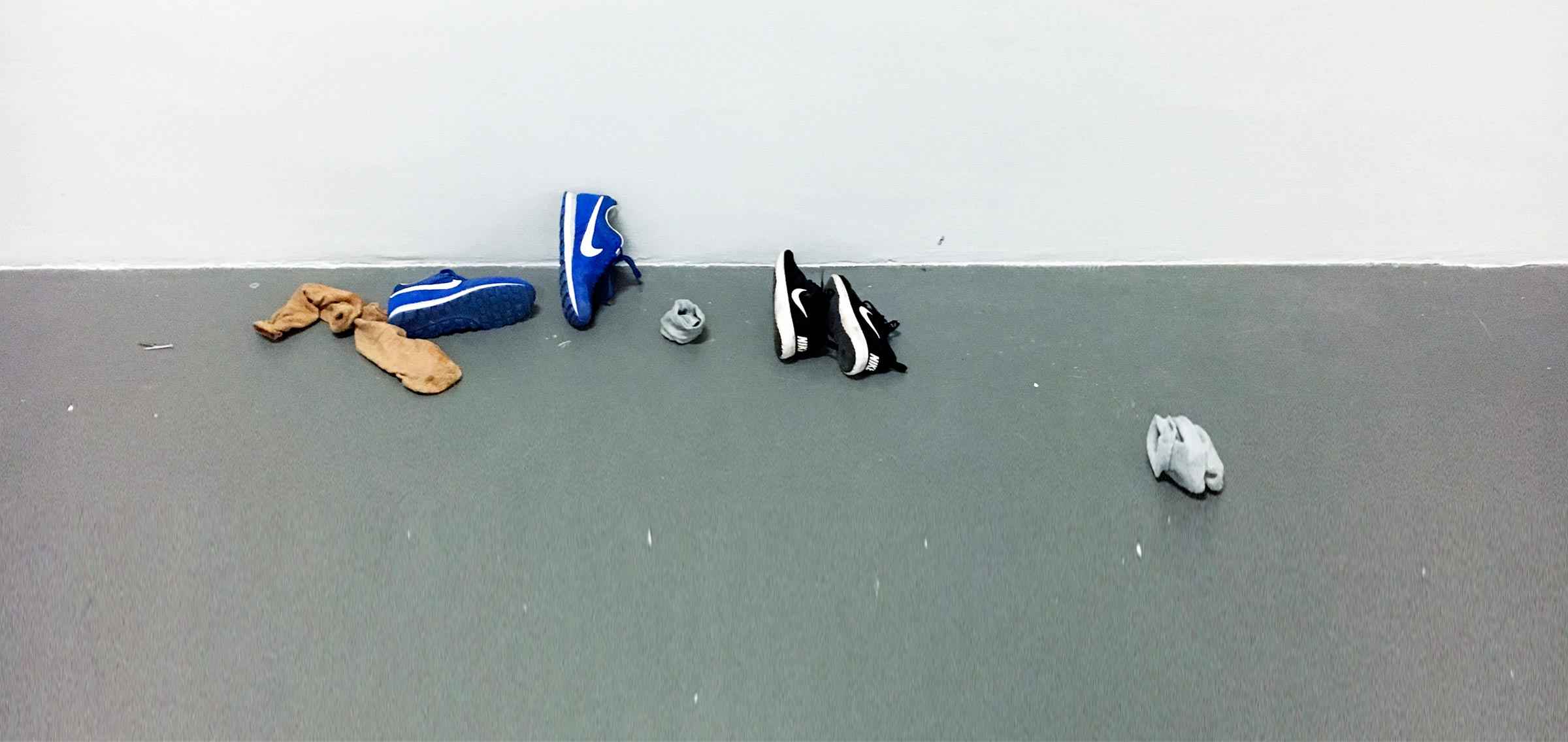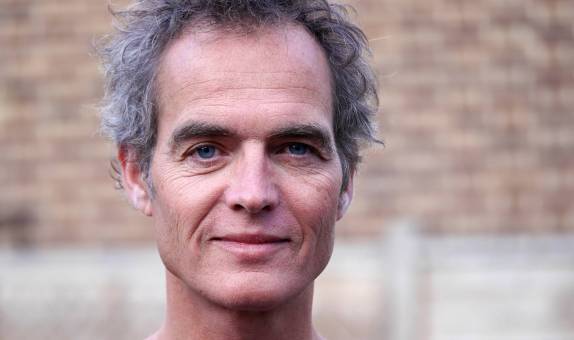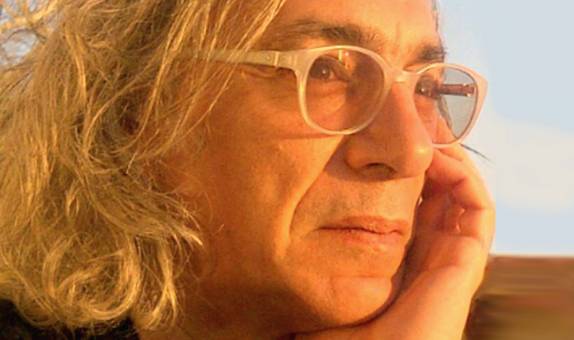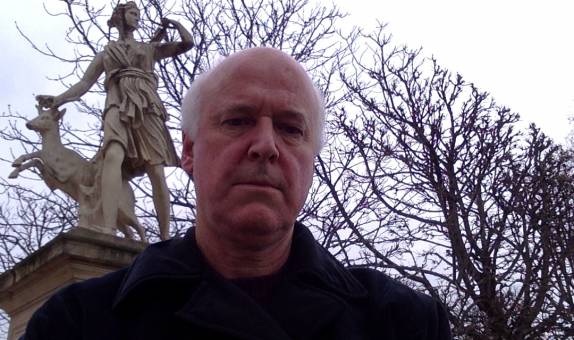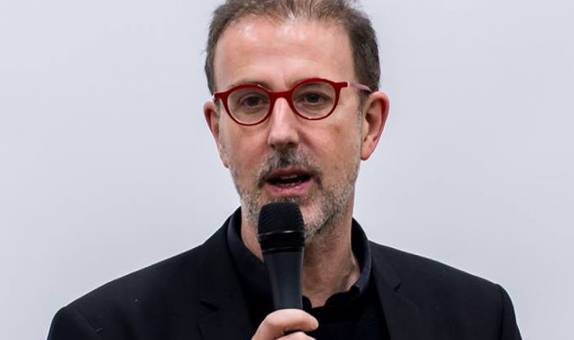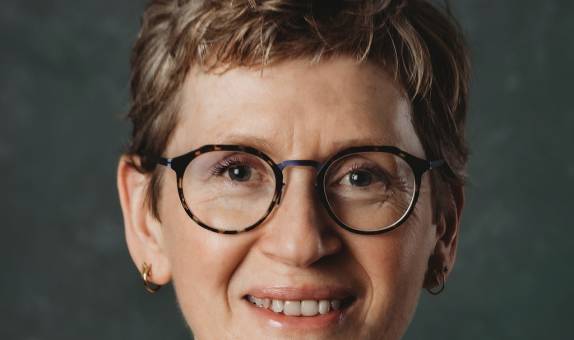Aesthetics and Art Theory MA
Why choose this course?
This course combines a grounding in philosophical aesthetics in the modern European tradition with a study of contemporary art theory and the philosophy of art history. It offers an overview of philosophical approaches to modern art, distinguishing between 'aesthetic', 'Romantic' and 'Modernist' problematics, and considers current debates on situated and 'planetary' aesthetics.
Modules engage with figures like Walter Benjamin, Theodor Adorno, Gilles Deleuze, Jacques Rancière, Rosalind Krauss and Benjamin Buchloh.
You will study at the UK's leading Centre for Research in Modern European Philosophy at Kingston University, which hosts conferences, workshops and regular seminars.
| Mode | Duration | Attendance | Start date |
|---|---|---|---|
| Full time | 1 year | Two modules per week | September 2025 |
| Full time | 2 years including professional placement | Two modules per week plus placement year | September 2025 |
| Part time | 2 years | One module per week | September 2025 |
| Main Location | Penrhyn Road |
Reasons to choose Kingston University
- This course is taught by leading specialists in the internationally renowned Centre for Research in Modern European Philosophy (CRMEP).
- Unlike most courses on art theory, it grounds its problems and concepts in their appropriate philosophical context.
- The course will prepare you for careers in the arts, education and public policy, and for doctoral research across the humanities and social sciences.
The Art School Experience
As part of Kingston School of Art, students on this course benefit from joining a creative community where collaborative working and critical practice are encouraged.
Our workshops and studios are open to all disciplines, enabling students and staff to work together, share ideas and explore multi-disciplinary making.

What you will study
You'll study canonical authors including Adorno, Aristotle, Benjamin, Deleuze, Derrida, de Duve, Duchamp, Greenberg, Heidegger, Kant, Krauss, Rancière, and Schlegel, and gain a clear overview of the main philosophical approaches to modern and contemporary art.
The course will distinguish between ‘aesthetic', ‘Romantic' ‘Modernist' and ‘Contemporary' (global) problematics, and will offer a distinctive grounding in ongoing debates over the reception of contemporary art.
Modules
You may also choose from a range of option modules from the Modern European Philosophy and Philosophy & Contemporary Critical Theory MA courses.
You'll take one core taught module worth 30 credits, and then choose three other 30-credit modules from a range of options, before preparing the 15,000-word dissertation (worth 60 credits).
Modules
Additional year with placement
You'll engage with some of the most influential texts in modern and contemporary art theory from Kant, Schiller and Schlegel to Greenberg, Adorno, Rancière and Deleuze – framed in terms of fundamental conceptual problems inherited from the German Idealists.
Core modules
Kant and the Aesthetic Tradition
30 credits
This module provides an introduction to the tradition of philosophical aesthetics through a detailed study of its founding text, Kant's Critique of the Power of Judgement.
Philosophy Dissertation
60 credits
This module provides you with an opportunity for intensive and detailed research-based study of your chosen topic under the guidance of an appropriate MA dissertation supervisor.
Optional modules
Art Theory: Modernism, Avant-Garde, Contemporary
30 credits
Based on a study of artists' texts, art criticism, art history and philosophical writings on art, this module comprises a critical examination of the legacy and possibilities of modernist and avant-garde criticism in contemporary art theory. As well as introducing students to some of the major texts and ideas in these traditions of art theory and art criticism, the modules aims to enable students to reflect critically on works of contemporary art in the light of their study.
Critique, Practice, Power
30 credits
A historical and philosophical introduction to the two main 20th-century traditions of Critical Theory: the Frankfurt School and French anti-humanism. After several works devoted to Kant's conception of freedom and practical philosophy, the module focuses on competing conceptions of critique, practice and empowerment, in, for example, Marx, Lukács, Adorno and Horkheimer, Althusser, Foucault, and one or two more recent thinkers (e.g. Badiou or Rancière).
German Critical Theory
30 credits
This module involves guided study of two or three major works of twentieth-century German critical theory or philosophy, focusing each year on the work of two or more related thinkers, such as Benjamin, Adorno, Horkheimer, Habermas, Sloterdijk. Indicative topics include: critique of enlightenment, philosophy of history, the non-identical, dialectics, materialism, reification, freedom, communicative reason and the philosophical response to the Shoah.
Hegel and his Legacy
30 credits
Through our reading of the Phenomenology of Spirit, we will focus on the issue of understanding, more specifically of philosophical understanding. In the Preface, Hegel states that "philosophical writings" "have to be read over and over before they can be understood" (§63). Which specific mental, cognitive and affective operations does such a rereading imply? According to Hegel, our understanding (Verstand) is not, as a faculty, able to give us access to the "concept" (Begriff). What is it that our understanding does not understand? Through despair, doubt, skepticism and pain produced by the resistance of the philosophical statement, something appears — spirit. "Spirit that appears", such is the meaning of the title Phenomenology of Spirit, such is also the name of the proper philosophical understanding: revelation.
Kant and his Legacy
30 credits
This module provides students with a grounding in Kant's philosophy, through detailed study of the Critique of Pure Reason and its competing interpretations. The module presents Kant's critical project as an historical and conceptual basis for the understanding of subsequent European philosophy as a whole.
Nietzsche and Heidegger
30 credits
This module offers students an opportunity to study major works by Nietzsche and Heidegger. In particular it considers the relationship between Nietzsche's critique of metaphysics as the manifestation of an ascetic 'will to truth' and Heidegger's project of 'dismantling' and 'overcoming' metaphysics in light of a renewal of the question of being.
Philosophy and Psychoanalysis
30 credits
Each year this module focusses on a study of a different selection of Freud's major and minor works, mining them for their philosophical significance and reflecting on the implications of psychoanalysis for philosophy, particularly in relation to the philosophical notion of the subject. Where appropriate the module will discuss the critical development of this theoretical framework by psychoanalysts such as Jacques Lacan and Jean Laplanche, its reception and deployment in the tradition of Freudo-Marxist critical theory, and the theoretical transformation and political critique of Freudian theory in feminist and queer theory.
Plasticity and Form
30 credits
This module aims to investigate, via the concept of plasticity, the relations between 'thought' and 'form, that have structured certain central aspects of nineteenth and twentieth-century 'continental' philosophy. Each year, these relations are studied from a different point of view, and in relation to different thinkers. Thinkers covered might include Hegel, Nietzsche, Heidegger, Foucault and Derrida. Each year the locus of study might include broad areas such as 'writing' (in Derrida's sense), 'literature' (Dichtung), 'habit', and 'trace'.
Political Philosophy
30 credits
This module involves guided study of one or more major works of modern political philosophy. Texts and themes vary from year to year, but possible topics include: power, class, the state, sovereignty, government, organisation, institution, constitution, representation, democracy, ideology, property, mode of production, capitalism, colonialism, slavery, violence, subjection, nature, citizenship, law, rights, difference, justice, legitimacy, insurrection, insurgency, revolution, resistance, and so on. Approaches to the material will be filtered through contemporary debates in European philosophy and critical theory, with reference to figures like Agamben, Foucault, Negri or Rancière; primary texts may include canonical works by Machiavelli, Hobbes, Spinoza, Locke, Rousseau, Hume, Kant, Fichte, Hegel, Feuerbach, Marx, as well as material associated with major political sequences like the revolutions in France, the Americas, Russia, Cuba, and so on, or with more recent sequences like the anti-colonial struggles, May 68, or social mobilisations around questions of race, sex, class, debt, etc.
Recent French Philosophy
30 credits
This module involves guided study of two or three major works of twentieth-century French philosophy, focusing each year on the work of two related thinkers. Possible topics include: Sartre or de Beauvoir's existentialism, Levinasian ethics, Merleau-Ponty's theory of embodied perception, Foucault's theory of power, Derrida's practice of deconstruction, Deleuze's conception of difference, Badiou's concepts of the subject and truth.
Recent Italian Philosophy
30 credits
This module involves guided study of a selection of major works of post-war Italian philosophy, focusing each year on the work of two or more related thinkers. The module will explore the tension in Italian philosophy between the claims of theology and radical politics, one expressed in the turn to bio-philosophy and bio-politics during the 1990s. Thinkers studied include Agamben, Cacciari, Negri and Esposito. Topics will include: the place of contemporary Italian philosophy with respect to the history of philosophy, its place with respect to French and German philosophy, political theology, time, bio-philosophy and bio-politics.
Modes of Subjection
30 credits
Beginning with John Locke and Immanuel Kant, this module investigates the philosophical genealogy of the concept of the subject and its related terms, including subjection, subjectivity and subjectivation. We then study various twentieth- and twenty-first-century articulations of some historical modes of ‘subjection' and ‘subjectivation', especially in their racial and sexual configurations. Thinkers studied include W.E.B. Du Bois, Michel Foucault, Frantz Fanon, Gayatri Chakravorty Spivak, Sylvia Wynter, Judith Butler and Simone de Beauvoir.
Planetary Aesthetics
30 credits
This module studies the emergence of a planetary aesthetic in contemporary art theory and practice. Including a critical assessment of the concepts of 'nature', 'earth', 'globe' and 'planet', it addresses both conservationist and interventionist aesthetic theories and art practices in both environmental art and activism. In this module students assess the extent to which planetary aesthetics poses a coherent and reasoned challenge to received understandings of the art object, artistic subjectivity and environmental art.
Many postgraduate courses at Kingston University allow students to do a 12-month work placement as part of their course. The responsibility for finding the work placement is with the student; we cannot guarantee the work placement, just the opportunity to undertake it. As the work placement is an assessed part of the course, it is covered by a student's Student Route visa.
Find out more about the postgraduate work placement scheme.
Please note
Optional modules only run if there is enough demand. If we have an insufficient number of students interested in an optional module, that module will not be offered for this course.
Entry requirements
Teaching and assessment
The course is delivered through relatively small seminars, which involve a mixture of structured lectures or presentations, textual analysis, and group discussion.
Who teaches this course?
This course is taught by leading specialists at the internationally renowned Centre for Research in Modern European Philosophy.
Since its inception in 1994, the CRMEP has developed a national and international reputation for teaching and research in the field of post-Kantian European philosophy, characterised by a strong emphasis on broad cultural and intellectual contexts and a distinctive sense of social and political engagement.
In each of the last two research assessment exercises, RAE 2008 and REF2014, 65% of the research activities of the CRMEP were judged 'world-leading' or 'internationally excellent', with 25% of its outputs for REF2014 judged 'world-leading'.
Postgraduate students may also contribute to the teaching of seminars under the supervision of the module leader.
Fees for this course
Additional costs
Depending on the programme of study, there may be extra costs that are not covered by tuition fees which students will need to consider when planning their studies. Tuition fees cover the cost of your teaching, assessment and operating University facilities such as the library, access to shared IT equipment and other support services. Accommodation and living costs are not included in our fees.
Where a course has additional expenses, we make every effort to highlight them. These may include optional field trips, materials (e.g. art, design, engineering), security checks such as DBS, uniforms, specialist clothing or professional memberships.
Facilities
The campus at Penrhyn Road is a hive of activity, housing the main student restaurant, the extensive learning resources centre (LRC), and a host of teaching rooms and lecture theatres.
The library provides books, journals, computers and a range of learning environments organised into silent, quiet and group study zones. It has long opening hours with 24 hour opening during key teaching weeks (October to June).
There are seven bookable group study rooms for when you need to work together. The large Learning Cafe serves light snacks and drinks.
At the heart of the campus is the John Galsworthy building, a six-storey complex that brings together lecture theatres, flexible teaching space and information technology suites around a landscaped courtyard.
After you graduate
Our graduates often progress to research degrees in European philosophy and critical theory, or to careers in media/journalism, publishing, the arts, education, and public policy.
For example, recent graduates from the Aesthetics and Art Theory MA course have progressed to the following:
- Michael Sperlinger has become assistant director of the arts agency Lux (London);
- Marta Kuzma has become director of the Office of Contemporary Art Norway (Oslo);
- Ruth Blacksell has become a lecturer and associate director of O-SB Design, University of Reading;
- Louise Hanson has begun a PhD at Brasenose College, Oxford;
- Dessislava Dimova is finishing a PhD at the Bulgarian Academy;
- Anda Klavina is now a curator at the Latvian Centre for Contemporary Art (Riga);
- Kate Parker is director of City Projects (London);
- John Millar began a PhD at CRMEP in autumn 2015 having been awarded a TECHNE-AHRC Consortium Studentship;
- Andrey Shental is senior editor at Theory and Practice while contributing to several other Russian periodicals, including Artchronika;
- Alex Fletcher has been awarded a 3-Year PhD AHRC Studentship by the TECHNE consortium, to work on 'Spaces of Capital: Narrating Social Space and Time in the Photo and Video Essay' in the CRMEP;
- Josefine Wikström has begun a PhD in the CRMEP on Ontologies of Production and Performance;
- Luke Skrebowski submitted his PhD in CRMEP simultaneously with the dissertation for this, his second MA. He now lectures in art history at the University of Cambridge;
- Gil Leung is distribution manager at the Lux Arts Agency, London, and editor of VERSUCH journal. She previously worked as assistant curator for Tate Film and Live Programmes; and
- Pilar Villela Mascaro is a freelance curator in Mexico City.
Links with business, industry and the research environment
The Centre for Research in Modern European Philosophy (CRMEP) organises regular research seminars, conferences or workshops each year. Research seminars are usually held every fortnight during term time; recent speakers have included:
- Giorgio Agamben (University of Paris 8);
- Emily Apter (New York University);
- Antonia Birnbaum (University of Paris-8);
- Barbara Cassin (CNRS);
- Miguel de Beistegui (University of Warwick);
- Peter Dews (University of Essex);
- Donna Haraway (University of California, Santa Cruz);
- Sandra Harding (University of California, LA);
- Stephen Houlgate (University of Warwick);
- Kojin Karatani (Columbia University);
- Koichiro Kokubun (Tokyo Institute of Technology);
- Quentin Meillassoux (École Normale Supérieure);
- Nina Power (Roehampton University);
- Isabelle Stengers (Université Libre de Bruxelles);
- Philippe Van Haute (Radboud University, Nijmegen);
- Slavoj Zizek (Institute for Social Studies Ljubljana);
- Alenka Zupancic (Slovenian Academy of Sciences and Arts).
Research areas
This course is taught by internationally recognised specialists at the Centre for Research in Modern European Philosophy (CRMEP), which has a national and international reputation for teaching and research in the field of post-Kantian European philosophy.
In each of the last two research assessment exercises, RAE 2008 and REF2014, 65% of the research activities of the CRMEP were judged 'world-leading' or 'internationally excellent', with 25% of its outputs for REF2014 judged 'world-leading'.
Our research areas include:
- modern European philosophy from the eighteenth century to the present;
- Kant, Hegel, and German Idealism;
- Marx and Marxism;
- Frankfurt School critical theory;
- philosophies of time and history;
- critical philosophy of race;
- conceptions of transdisciplinarity;
- aesthetics, art theory and cultural theory;
- philosophical and political approaches to contemporary art;
- philosophy and the visual arts;
- recent and contemporary French philosophy;
- recent Italian political philosophy;
- globalisation, post-colonial theory, contemporary politics;
- revolutionary political theory;
- contemporary philosophies of sex and gender;
- feminist philosophy; and
- philosophical approaches to psychoanalysis.
Course changes and regulations
The information on this page reflects the currently intended course structure and module details. To improve your student experience and the quality of your degree, we may review and change the material information of this course. Course changes explained.
Programme Specifications for the course are published ahead of each academic year.
Regulations governing this course can be found on our website.
